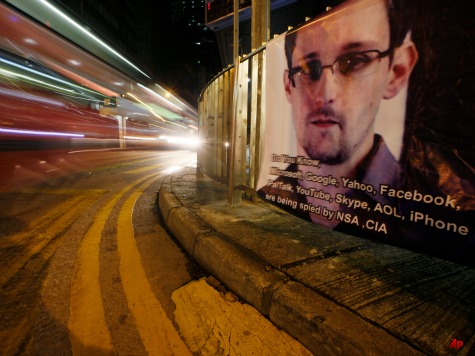
This morning’s key headlines from GenerationalDynamics.com
- Ethnicity to play a big part in Afghanistan election runoff
- Al-Qaeda ‘rubs hands with glee’ at Snowden disclosures
- South Korea’s prime minister resigns over ferry disaster
Ethnicity to play a big part in Afghanistan election runoff
U.S. ally Abdullah Abdullah got 44.9% of the vote in the first roundof the eight-candidate presidential race earlier this month. Insecond place was Ashraf Ghani, a former finance minister and WorldBank technocrat, with 31.5%. Since no candidate got 50% of the vote,a runoff election is scheduled for June 7.
Ethnic identity is becoming a major factor in the election.Afghanistan’s last generational crisis war was the extremely bloodycivil war fought between 1991 and 1996. The war was fought mainlybetween the Pashtuns in southern Afghanistan versus the NorthernAlliance of Tajiks, Hazaras and Uzbeks in northern Afghanistan.Today’s Taliban terrorists are radicalized Pashtuns.
Abdullah is half Pashtun and half Tajik, but he’s regarded as Tajikaround the country because he fought alongside the Tajiks during thecivil war. So it’s perhaps not surprising that Abdullah got 80% ofthe vote in parts of northern Afghanistan, while getting only 3% inpurely Pashtun areas in the south and east. In the election earlierthis month, the Pashtun vote was split among several Pashtuncandidates, but if you add together all the votes for Pashtuncandidates, then it exceeds Abdullah’s vote.
Non-Pashtuns have rarely been elected president, and have done poorlywhen they were. For example, the conservative King Habibullah waslampooned as the “son of a water carrier” and was only in power forless than a year at the end of the 1920s before he was executed.
If Abdullah does win, then he’ll have to try to unify the country bybefriending the Pashtuns, which won’t be easy given that he was withpeople who were torturing, raping, decapitating and slaughteringPashtuns just 20 years ago. Deutsche-Welle and Bloomberg
Al-Qaeda ‘rubs hands with glee’ at Snowden disclosures
We have no way of knowing whether the massive intelligence leaks byEdward Snowden have made our missile defenses helpless against amissile attack by China, since neither the U.S. nor the Chinesegovernment are talking about things like.
However, there is one American enemy that is not afraid to talk aboutit and brag about how it’s helping them prepare secret jihadist terrorattacks against America and other targets: Al-Qaeda. According toJohn Sawers, head of Britain’s secret service MI6:
“The leaks from Snowden have been very damaging, andthey’ve put our operations at risk… It’s clear that ouradversaries are rubbing their hands with glee. Al-Qaeda is lappingit up.”
A recent issue of the English language Inspire, in the midst ofexplaining how to encrypt communications to prevent Westerngovernments from learning about terror attacks before they occur, wasquite gleeful in its description of the Snowden leaks:
“Obama lied in regard of the NSA program. He assertedit did not spy on its citizens. But every dog has its day, andNSA’s day came when the whistleblower Edward Snowden revealed theNo Secret Agency’s dark secrets. The people called for thegovernment to observe the American principles but it did notlisten. It abandoned all its privacy policies. This rogue countrydid not stop at spying on its citizens, it killed themtoo. Several of its citizens have been targeted in their extrajudicial killing program.”
Al-Qaeda began using encryption tools in 2007 for its onlineactivities, and by 2009 was distributing a tool called “AsrarAl-Mujahideen” (“Mujahideen Secrets”), based on military gradesecurity technology, to be used for communications by “anyone whowants to wage jihad with us, and we will guide him to a suitable meansto kill the collaborators and the archons of unbelief – even in hisbedroom or workplace.”
Although the “Mujahideen Secrets” provides totally securecommunications when properly used, jihadists and murderers are likeother people in that sometimes they’re too lazy to do things right,and many of the continued to use insecure communications channels likegmail.
However, since the Snowden disclosures, al-Qaeda has changed all itscommunications protocols, even refusing to accept messages thathaven’t been properly secured.
For example, a recent article is directed at those wishing to carryout lone wolf jihad attacks. It provides instructions for use ofencryption software in communicating with al-Qaeda’s “militarycommittee,” and promises help in planning and executing the attack,and takes responsibility for providing media coverage. Memri
South Korea’s prime minister resigns over ferry disaster
The sinking of a ferry off the coast of South Korea on April 16, with476 passengers, mostly students and teachers, has taken its firstpolitical casualty. South Korean Prime Minister Chung Hong-wonannounced his offer of resignation in the fact of furious protests forparents and family members accusing him of mishandling the situation,and not responding quickly enough to save passengers. According toChung:
“I wanted to resign earlier but handling the situationwas the first priority and I thought that it was a responsible actto help before leaving. But I’ve decided to resign now, not to beany burden on the administration.”
Chung has a close relationship with President Park Geun-hye, andrecently took trips to China and Pakistan to improve political andeconomic ties. With North Korea’s government seemingly always inchaos, it will be important for South Korea’s relationship with Chinato remain stable. BBC andKorea Times (4/14)
Permanent web link to this article
Receive daily World View columns by e-mail

COMMENTS
Please let us know if you're having issues with commenting.